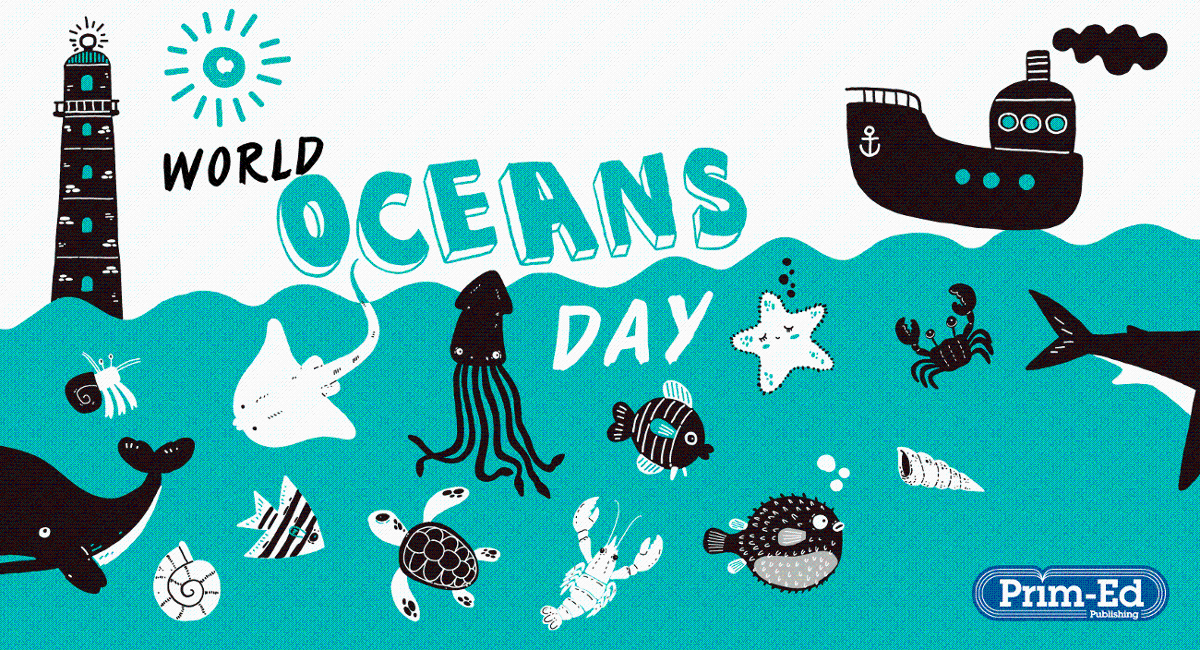- Thursday 08 June 2023
Oceans are vital for life on Earth. They cover over 70% of the Earth’s surface and we rely on them for food supplies, people’s livelihoods and climate control. Not to mention that the oceans are home to a wide variety of incredible plant and animal life. However, our oceans are under threat from harmful human activities.
This World Oceans Day, we have created a fantastic freebie – centred around Meish Goldish’s fabulous poem Sea Creatures – to encourage pupils to learn more about the wonderful life that lives beneath the waves! Download our World Oceans Day freebie and start an important conversation in your classroom about what we can do to preserve our oceans for future generations.
We can all play a role in protecting and conserving our oceans. In fact, there are seven actions that we can all take to help care for our oceans.
1. Reduce pollutants
Reducing our use of chemicals, such as pesticides, herbicides, paints and cleaning products, is one step we can take to reduce our impact on the environment. Instead of these damaging products, we should try to use non-toxic chemicals. Fortunately, more and more products that reduce the use of chemicals are available in supermarkets and shops today. We need to purchase these instead of their chemical-filled alternatives.
2. Shop wisely
We need to shop sensibly and with a deeper awareness of the consequences that our choices can have on our oceans. Reducing our purchases of plastic-wrapped products and continuing to bring reusable bags with us while we shop are two ways we can shop responsibly. Choose recyclable containers wherever possible and ensure that they are recycled correctly when you’re finished with them.
3. Fish responsibly
Fishing responsibly is an important way to protect our oceans and their inhabitants. ‘Catch and release’ practices should be followed at all times as this helps keep fish stocks high and sea life thriving.
4. Use plastic-free products
Plastics are causing a huge amount of damage to our oceans. In the last ten years, humans have produced more plastic products than in the previous century. Plastic waste makes up 80% of all marine pollution , and around 8 to 10 million metric tonnes of plastic end up in oceans each year.
Plastic generally takes 500–1,000 years to degrade. Research predicts that by 2050, plastic will likely outweigh all fish in the sea. We have to do our bit as consumers to try to get companies to make plastic-free products in all areas of our lives. We must also avoid single-use plastics, such as coffee cups, straws, balloons, and plastic bags – our oceans depend on it.
5. Eat sustainable seafood
Seafood is healthy for us and a great source of nutrition, but we should ensure that we eat sustainable seafood. We should eat small, wild fish that are caught locally. In fact, small, oily fish are a good source of protein for our diet. Plus, sustainable seafood protects the long-term numbers of fish species.
6. Leave no trace
When we choose to visit the beach, we need to be conscious of what we bring. Make sure that you take everything with you when you leave. The aim should be to leave no trace of your being there. Take all rubbish and other items back with you and dispose of them properly.
7. Create awareness
Do your family and friends take these actions to reduce their impact on the environment? Make sure that your friends and peers know about the damage that is happening to our oceans and what they can do to help reduce it. Where possible, volunteer for a beach clean-up and work with local communities in protecting our beautiful beaches and ocean areas.
For World Oceans Day, we’ve put together a fun and educational activity to use in the classroom. You can download yours for free now!
Our oceans are home to so much incredibly diverse and wonderous life, and humans are threatening this. It’s not too late to help preserve this life and live in harmony with our oceans. We can all do our bit to help decrease our impact on our environment.
Get involved today by teaching your pupils about the importance of protecting our oceans!


